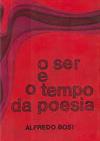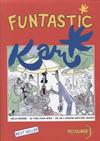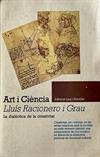
The Quickening Maze
1 journaler for this copy...
To be really honest, before I read this book, I'd never heard of the poet John Clare, so I wasn't sure who this person was. But truthfully, this book floored me. It's another one of those where you have to take some time to think about it after you've read it.
Set across seven seasons, beginning in 1840, The Quickening Maze is a novel about imprisonment – and how the characters involved each try to escape it. In Epping Forest, outside of London, Dr. Matthew Allen runs High Beach Asylum, where one of his most notable patients is John Clare, the “peasant poet”, who has descended into insanity and is plagued by a loss of his own identity (often believing he’s someone else, for example, Lord Byron). In a 2004 review of Jonathan Bate’s biography about John Clare, Edward Hirsch notes that “Clare's poetry intimately chronicles a world that was rapidly disappearing, that was systematically divided up into rectangular plots of land, fenced off and restricted, enclosed.” Clare lives in the past, with his dreams of getting out of the confines of the asylum, back to nature and to his past, where he was the most happiest. But it’s not just Clare who feels imprisoned in Epping Forest. Dr. Allen, a former debtor, has been facing the fact that he needs more money, and comes up with the idea of enlisting investors for an invention that will hopefully put more money in his coffers and solve all of his money problems. There’s also Allen’s daughter Hannah, who thinks she’s in love with poet Alfred Tennyson, whose brother is spending time at the asylum for melancholy. Hannah dreams of falling in love, marrying, and leaving her current life and escaping, as did her sister who married and hasn’t looked back. There’s Margaret, who suffers from religious delusions, looking for help from above to escape her own brutal treatment.
The book is rather short, but don’t let that fool you. Foulds is an amazing writer and his characters are all rather well drawn down to the smallest detail. His writing is sparse, but he manages to leave the reader with pictures of people who have become lost. It doesn't need to be any longer -- for its size, the book is very intense. I’ve never read anything by this author before, but I will be looking for more in the future. This is a wonderful book, and I would highly recommend it, but maybe not to readers of general or mainstream fiction.
Set across seven seasons, beginning in 1840, The Quickening Maze is a novel about imprisonment – and how the characters involved each try to escape it. In Epping Forest, outside of London, Dr. Matthew Allen runs High Beach Asylum, where one of his most notable patients is John Clare, the “peasant poet”, who has descended into insanity and is plagued by a loss of his own identity (often believing he’s someone else, for example, Lord Byron). In a 2004 review of Jonathan Bate’s biography about John Clare, Edward Hirsch notes that “Clare's poetry intimately chronicles a world that was rapidly disappearing, that was systematically divided up into rectangular plots of land, fenced off and restricted, enclosed.” Clare lives in the past, with his dreams of getting out of the confines of the asylum, back to nature and to his past, where he was the most happiest. But it’s not just Clare who feels imprisoned in Epping Forest. Dr. Allen, a former debtor, has been facing the fact that he needs more money, and comes up with the idea of enlisting investors for an invention that will hopefully put more money in his coffers and solve all of his money problems. There’s also Allen’s daughter Hannah, who thinks she’s in love with poet Alfred Tennyson, whose brother is spending time at the asylum for melancholy. Hannah dreams of falling in love, marrying, and leaving her current life and escaping, as did her sister who married and hasn’t looked back. There’s Margaret, who suffers from religious delusions, looking for help from above to escape her own brutal treatment.
The book is rather short, but don’t let that fool you. Foulds is an amazing writer and his characters are all rather well drawn down to the smallest detail. His writing is sparse, but he manages to leave the reader with pictures of people who have become lost. It doesn't need to be any longer -- for its size, the book is very intense. I’ve never read anything by this author before, but I will be looking for more in the future. This is a wonderful book, and I would highly recommend it, but maybe not to readers of general or mainstream fiction.










